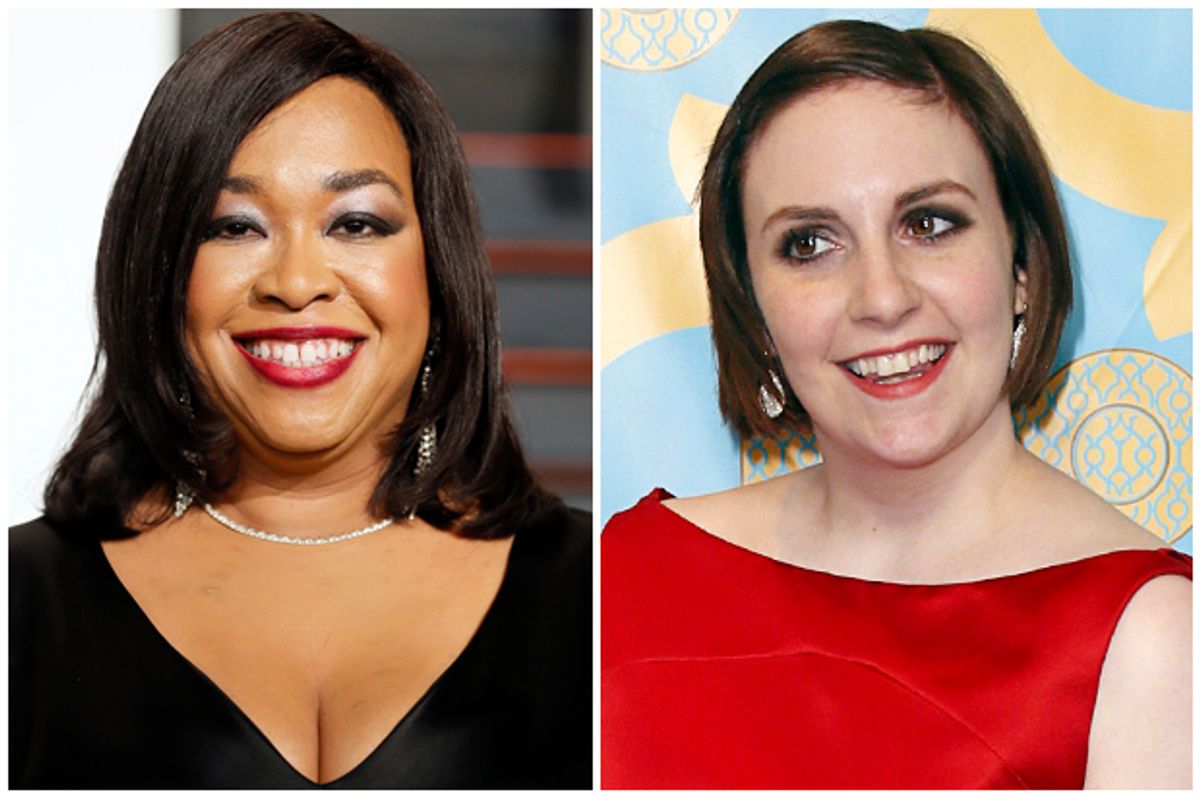With the state of women in Hollywood looking increasingly bleak (save us, J.Law!) many have pointed to TV as the solution to Hollywood’s diversity problem. As Jon Lisi wrote in PopMatters, "for the most part, popular television in the United States lacks Hollywood’s white male problem,” while Julie Klausner recently told Fusion that "television, because it’s a collaborative medium by its nature, has always been better for women."
To be fair, there have certainly been a lot of high profile women and people of color dominating the TV landscape as of late, with prominent showrunners like Shonda Rhimes, Jenji Kohan, Lee Daniels and Lena Dunham, and shows like "Black-ish," "Empire," "Fresh off the Boat," and "The Minority Report" contributing to TV's sunny reputation as Hollywood's more equitable younger sibling. Yet a recently-released report from the Writers Guild of America West indicates that the small screen might be as bad as the big one when it comes to diversity behind-the-scenes. According to the study, jobs for women, as well as for minority and older TV writers, plummeted in 2013-14. “Women and minorities have actually lost ground as compared to their white male counterparts, both in terms of overall staff positions and in higher-level executive producer ranks,” the study reads.
The study found that minority writers saw a 7% decline in employment, while female writers fell 5%, from 30.5% to 29%. The study also found that women’s share of executive producing positions has declined, from 18.3% last year to 15.1%, while minority share of executive producing positions has declined from 5.8% last year to 5.5%. The study also revealed that minority writers staff 60-minute shows more than 30-minute shows, and that other sorts of programming (like late night shows and talk shows) were significantly less diverse than sitcoms and dramas. The study also found that women writers fared best on cable, while minority writers were underrepresented by at a factor of 2 to 1 on major broadcast networks. You can read the full report, via the LA Times, here.
Although diversity has improved incrementally over the past decade, UCLA sociology professor Darnell Hunt, who authored the report, explained that "While the general pattern consists of an upward trajectory in diverse sector employment, the rate of progress has failed to keep pace with the rapid diversification of the nation's population.” Sure, we may live in the age of ShondaLand, but unfortunately it’s still very much a white man’s world.

Shares